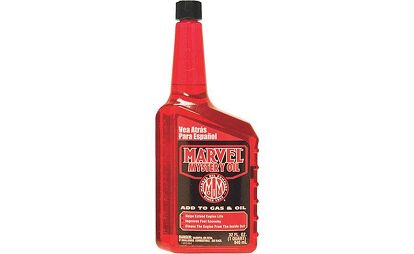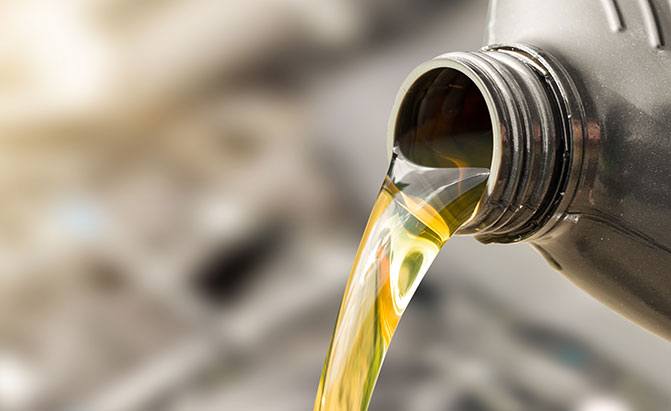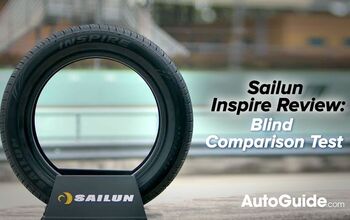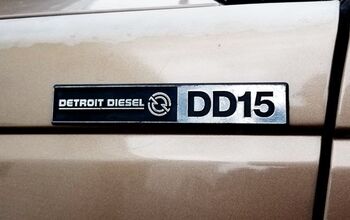The Best Oil Additive to Keep You Running
Most drivers know that regular oil changes are necessary to maintain the life and performance of their vehicle. For many people, changing the oil and filter every 3,000 miles is the norm, but improvements in lubrication technology have led to oils that can safely be used for longer periods of time. Simply changing your oil on a regular mileage-based schedule will go a long way in insuring that your vehicle runs well for years, but there are other ways to care for your engine internals.
Using the best engine oil additive can help improve the performance and longevity of your engine in a variety of ways. Most change the viscosity of the engine oil. Some also provide a coating of sorts to the engine internals and others help break up and flush out sludge. There are even some that serve as additives for other types of automotive fluids. Best of all, you just add them to your engine oil.
All of these additives are helpful in some way, but there are enough to fill an entire aisle at your local auto parts store. That can lead to some confusion, especially among drivers who haven’t shopped for the best oil additive before.
Do Engine Oil Additives Work?
In testing, the US Army found a number of benefits to oil additives, especially in low temperatures and high-stress environments. Diesel engines, in particular, can also benefit from diesel-specific fuel additives. Older vehicles, ones that have been sitting or aren’t used often, and those operating in extreme conditions like heat, cold, heavy towing, and offroading, are all good candidates for making the best oil additive part of your maintenance routine. New cars probably don’t need them, just a high-quality modern engine oil. New cars now come from the factory with a special break-in oil package that you definitely shouldn’t mess with.
In this article, we help narrow down those options as we look at the best oil additives on the market.
Table of contents
- 1. Editor's Pick: Lucas Heavy Duty Oil Stabilizer
- 2. Marvel Mystery Oil
- 3. Hot Shot's Secret Original Stiction Eliminator
- 4. Archoil Oil Additive (AR9100)
- 5. Prolong Super Lubricants Engine Treatment (PSL11000)
- 6. REV X High Performance Oil Additive
- 7. Liqui Moly Cera Tec Friction Modifier
- 8. Restore Engine Restorer & Lubricant
- 9. Sea Foam Motor Treatment
- Why do you need oil additives?
- How do oil additives work?
- Recent Updates
1. Editor's Pick: Lucas Heavy Duty Oil Stabilizer
If you have ever spent any time in a large auto parts retailer, you have likely seen the Lucas Heavy Duty Oil Stabilizer display. It is small but impactful, with two sets of gears under a plastic cover, each attached to a crank handle. One set of gears has only engine oil, while the other has engine oil with Lucas Heavy Duty Oil Stabilizer. When you turn the crank handle for each, you can see how much better the oil is with the Lucus additive coats. Also, when you stop cranking, you can see how well the gears remain coated when the oil drains down.
Unlike some of the other products you'll find further down our list, this Lucas product isn’t about coating the engine in a space-age material. Instead, it modifies the engine oil, making it a bit thicker and stickier. This helps to keep metal surfaces within the engine coated without any foreign solids or acids.
We have used Lucas Heavy Duty Oil Stabilizer in our own vehicles, including our vintage 1989 Lincoln Town Car, and it works wonders. If you have a little valvetrain noise, this oil stabilizer will often help to quiet that issue. If you would like your oil pressure to be a bit higher in an older vehicle, Lucas Heavy Duty Oil Stabilizer is the answer. Best of all, you will generally see immediate results in the oiling system.
Pros | Works quickly to quiet engine issues caused by low oil pressure, helps improve oil pressure on older engines |
Cons | Has to be added with every oil change, but one bottle lasts over multiple oil changes |
2. Marvel Mystery Oil
The makers of Marvel Mystery Oil call this product “the original oil enhancer and fuel additive,” and that is part of what makes it unique from the other products on this list. You can add Marvel Mystery Oil to almost any fluid in your vehicle. If you add it to the engine oil or some other lubrication circuit, including automatic transmissions or the power steering system, Marvel Mystery Oil works two-fold. It begins by cleaning the oiling system of sludge and other buildup. It then provides a layer of protection against more of the same muck from building up in the engine. This leads to better performance and improved fuel economy through the reduction of sludge and friction.
You can also add Marvel Mystery Oil to your fuel tank, whether you are running gasoline or diesel. In the fuel system, this product cleans out the path traveled by the fuel, including the injectors or carburetors. Once it heads into the combustion chamber, Marvel Mystery Oil cleans excess carbon buildup from the valves and the face of the piston.
In an automatic transmission or power steering system, the Marvel Mystery Oil cleans out all of the lubricated areas, coating components to protect buildup going forward. If your power steering pump or transmission is getting noisy, try Marvel Mystery Oil.
Marvel Mystery Oil works with gasoline, diesel, and biodiesel, along with all forms of oil, but it cannot be used with ethanol blends.
Pros | Can be added to oil or fuel, can be used to protect the automatic transmission or power steering system |
Cons | Not compatible with cars that run on ethanol blends |
3. Hot Shot's Secret Original Stiction Eliminator
Stiction is the static friction that exists between two engine components. This can include metal-to-metal contact when the engine is not running or the added friction created by carbon buildup inside the engine. This is the force working against you when you start your car on a cold morning, as the engine oil drains down while the engine is off. It also impacts performance and fuel economy while driving, as the friction between engine components reduces power and fuel economy.
Hot Shot's Secret Original Stiction Eliminator begins by cleaning out any deposits in your vehicle’s engine. As the sludge is flushed out, that component of stiction is removed. Next, the Stiction Eliminator coats the areas within the engine oiling system with a layer of “carbon nano lubricant” that helps to prevent metal-to-metal friction on cold starts, as well as helping to reduce friction during engine operation.
This product is marketed to diesel engine owners, but it also works for gasoline engines. That being said, if it will battle the internal sludge created by a diesel engine, it will help with a standard gasoline engine.
Pros | Improved performance and fuel economy, easier start-up, can reduce engine smoke |
Cons | Can take over 5,000 miles to work |
4. Archoil Oil Additive (AR9100)
When researching which oil additive is right for your vehicle, you are likely to notice that many additives seem to be developed for diesel engines. Many of the most popular engine oil additives are marketed to diesel engine owners because powerplants like Ford’s Power Stroke, RAM’s Cummins, and Chevy’s Duramax are subject to more internal wear and tear. Diesel engines generate more internal heat due to their high boost levels and extreme firing loads. However, many oil additives for diesel engines will also work well in your gasoline engines.
One of those that work well for both diesel and gasoline is Archoil's AR9100 Oil Additive. The company states that its oil additive “forms a solid boundary lubricating film that improves performance and protects engines.” In other words, as it mixes with the engine oil, the additive creates a thin coating everywhere in the oiling system. This coating reduces friction, improving power output and fuel economy.
This product is said to be particularly helpful for Ford and Dodge/RAM diesel engines which suffer from sludge stiction and cold start problems. The AR9100 will clean out the engine gunk and the coating prevents future buildup. In those engines with a hydraulic actuated electronic unit injector system, this product will help clean out those channels as well.
Finally, you can use this oil additive in your transmission, differential, and power steering systems as well.
Pros | Improves cold start, idle issues and performance, can be used on other drivetrain components |
Cons | It costs a little more than competition |
5. Prolong Super Lubricants Engine Treatment (PSL11000)
Prolong Super Lubricants is one of the biggest names in the world of engine oil additives, and the PSL11000 Engine Treatment is one of its most popular products. Like many other options, the Prolong Engine Treatment coats everything in the oiling system with an anti-friction metal treatment, but unlike some competitors, Prolong doesn’t use solid particles. Instead, this product creates a chemical bond with the metal surfaces to reduce friction and heat.
Prolong’s chemical coating doesn’t drain down with the engine oil when the engine is not running. When you start your engine cold without any additives, there are internal components that are experiencing metal-to-metal contact until proper oil pressure is achieved. This is especially true with valvetrain components. The PSL11000 Engine Treatment serves as a layer of lubrication until oil is fully circulating. That helps to reduce engine wear on cold starts, but that isn’t the only advantage of the Prolong oil additive.
The chemical compound of the Prolong PSL11000 Engine Treatment helps to reduce friction while you are driving. The freer-moving rotating assembly and valvetrain components yield better power and fuel economy. Finally, this chemical coating system helps to prevent engine sludge buildup.
Pros | One of the best-reviewed oil additives online, coats everything to improve performance and longevity |
Cons | Contains chlorinated paraffins, which some believe leads to internal engine corrosion over long periods of time |
6. REV X High Performance Oil Additive
REV X High Performance Oil Additive is another product that is popular in the world of high-performance diesel pickups, but it will work on your gasoline-powered car, truck, or SUV. In fact, this additive is not only good for engines, but you can also use it in your transmission, transfer case, differential, or hydraulic systems. REV X doesn’t use any solid particles, nor does it use any acids, but it provides a chemical layer of protection on every moving part that reduces friction and heat.
REV X is one of the top choices for diesel truck owners who have problems with their hydraulic injection system by reducing stiction caused by sludge buildup. This improves performance and fuel economy and makes for smoother cold starting. If you have a gasoline engine, it doesn’t have some of the same issues as diesel engines, but REV X will also remove any unwanted buildup in a gasoline engine’s oiling system. The product then provides protection from friction wear, even when the engine oil ages and begins to break down.
Finally, REV X helps to extend the life of your engine oil. If you change your oil every 3,000 miles, this product won’t allow you to go more miles, but your oil will be providing better protection when you change it.
Pros | Cleans and protects for improved performance and efficiency without solids or acids, can be used on things other than engines |
Cons | It costs quite a bit more than other oil additives |
7. Liqui Moly Cera Tec Friction Modifier
Cera Tec Friction Modifier from Liqui Moly is an anti-wear additive that can be used in engine oil as well as some manual transmission fluids. This product uses ceramic compounds to line all of the moving parts in a fine coating that helps to reduce friction, improving performance and fuel economy. As it lines the metal components, it helps to prevent sludge from building up over time while flushing out existing sludge when first added.
The coating in this Liqui Moly oil additive also helps to prevent metal-to-metal contact, so in addition to reducing friction, it reduces wear and tear on the internal components. It also may help reduce engine noise, and in the right situations, it can help the engine run more smoothly.
The coating in this product is pressure resistant, so it can be used in high-boost applications, including diesel engines. It will also stand up to extreme temperatures, both hot and cold.
Pros | Reduced engine wear and sounds, helps keep the lubricated surfaces free of sludge, improved power and fuel economy |
Cons | Causes engine oil to get dirty more quickly as it removes sludge |
8. Restore Engine Restorer & Lubricant
If you have an engine with high mileage, the odds are good that the vehicle is not as powerful as it was when new. Every time a piston moves up and down in your engine’s block, there are microscopic scores made in the cylinder walls and in the piston rings. Over a hundred thousand miles, those tiny scuffs can add up to be a major problem, reducing compression levels by as much as 25 percent. That loss in compression will lead to a significant dip in performance, and an engine rebuild is expensive. Fortunately, Restore Engine Restorer & Lubricant can help to recover some of that lost power.
Engine Restorer & Lubricant products can be used in high-boost applications. Once it works its way through the oil system, this product repairs tiny scuffs in all of the moving engine parts. The product also coats everything, so it fixes problems while working to prevent more damage in the future.
In addition to improving performance with refreshed compression levels and reduced friction, Restore Engine Restorer & Lubricant helps to improve fuel economy and lower oil consumption in older models. This will often reduce the amount of smoke coming from the exhaust of older vehicles.
Restore has four-, six- and eight-cylinder formulations, but we doubt there's any meaningful difference between them.
Pros | Restores performance in older engines, replacing costly engine build projects |
Cons | Some customers claim that the product doesn’t work well on engines with variable valve timing |
9. Sea Foam Motor Treatment
Sea Foam is another “wonder additive” in the automotive world, offering a wide range of functions from a single product. If your vehicle is running poorly, whether it is because of moisture in your fuel or gunk in your fuel system, Sea Foam will fix the problem. This product will also help to prevent gasoline from freezing in fuel lines or preventing diesel fuel from gelling in extreme cold. Once it passes through the fuel system, Sea Foam cleans the combustion chamber and the intake valves of carbon buildup while also lubricating the upper portion of the cylinders.
If you have a noise in the valvetrain or some other oiling issue, such as a clogged pickup in the pan, Sea Foam can help there as well. By adding the product to your crankcase, it helps to cut through oil sludge, coating the metal components to prevent more accumulation. This leads to increased oil pressure, often helping to get rid of valvetrain sounds caused by insufficient oiling on the top end. As the Sea Foam works its magic, it may make your engine oil a bit dirty, but it is removing the junk that you don’t want in your oiling system.
Sea Foam Motor Treatment can be used in the fuel and lubrication systems for gasoline and diesel engines, including biodiesel and ethanol blends. In 2- and 4-cycle small engines, it can be used in the lubrication system only.
Pros | Works as both an engine oil additive and a fuel additive in many different engines |
Cons | Many consumers receive dented cans when buying online |
Why do you need oil additives?
Photo credit: REDPIXEL.PL / Shutterstock.com
If you regularly change the oil in your vehicle with high quality oil and the proper filter, you are working to keep everything moving smoothly. Unfortunately, over time, engine oil breaks down, as do some internal engine components.
As the engine oil breaks down, it burns and sticks to certain areas in the oiling system where temperatures are particularly high. Along the same lines, as the piston rings, engine block, valvetrain, and other moving parts wear, microscopic bits of metal are released into the engine oil. Some of that debris is captured by the oil filter, but some of it is too fine for the filter to catch it. That super-fine debris often gathers in the pockets of burned oil sludge, leading to thicker, more problematic clogs in the system.
How do oil additives work?
Most engine oil additives begin by flushing the system of sludge and debris. This includes cleaning out the oil pan and the pickup, improving oil pressure at the source. The cleaning process also helps to clear out the path that the oil travels through the engine, leading to better lubrication on the top end of the engine. After the oil additive cleans the oiling system and its key components, it provides a layer of protection that prevents more accumulation going forward.
This entire process helps to prolong the proper function of both the engine oil and the filter. Cleaner, more effective engine oil leads to better performance and longevity, along with better fuel economy.
Another key function of some engine oil additives is stopping leaks. If you have a slight leak around the valve cover or the oil pan, replacing the seals can be time consuming and expensive. Some oil additives will save you from facing those expensive repairs by refreshing the seals.
Recent Updates
January 13, 2023: Updated product links.
December 23, 2022: Added information to the introduction. Updated product links.
December 8, 2022: Updated product links; removed Bars Leaks oil additive.
March 19, 2021: Updated with a promoted product recommendation.
We are committed to finding, researching, and recommending the best products. We earn commissions from purchases you make using the retail links in our product reviews. Learn more about how this works.
Main image credit: Egorov Artem / Shutterstock.com
Patrick Rall has been covering the automotive industry for over a decade, but was born into car culture. Having grown up in his father's performance shop, he spent extensive time at the track, driving and wrenching on various types of vehicles.
More by Patrick Rall










































Comments
Join the conversation